glitteringconstellations @ AO3 | 27, she/her, aroace | this is my VLD/YOI blog primarily | i do not tolerate ship-hate. | profile pic courtesy of @aku-usagi!
Don't wanna be here? Send us removal request.
Text
AHHHHH YES THIS IS IT
THANK YOU SO MUCH @blue-little-silly-and-unsure!!! I’m ready to go CRY
friends, i need help finding an old klance fic
It was a one shot, where Lance is dying on an ice planet from breaking his leg and bleeding out and freezing to death so he calls Keith because he doesn’t want to die alone. Keith, who’s out with the Marmora, somehow beats the odds and finds him in time. There’s an alien there who helps tend to Lance’s wounds.
Does this ring a bell for anyone and if so, have you a link? Some of my bookmarked fics were deleted and I’m afraid that might have been one of them bc I’ve been searching for 2 days and can’t find it.
24 notes
·
View notes
Text
friends, i need help finding an old klance fic
It was a one shot, where Lance is dying on an ice planet from breaking his leg and bleeding out and freezing to death so he calls Keith because he doesn’t want to die alone. Keith, who’s out with the Marmora, somehow beats the odds and finds him in time. There’s an alien there who helps tend to Lance’s wounds.
Does this ring a bell for anyone and if so, have you a link? Some of my bookmarked fics were deleted and I’m afraid that might have been one of them bc I’ve been searching for 2 days and can’t find it.
24 notes
·
View notes
Text
you know that expression, "dance like no one is watching you?"
try writing like no one is going to read it
it's easier to let yourself go and just enjoy the process of creation when you aren't also playing 6 dimensional chess with your insecurities and anxieties
write because you have fun writing and if you never post it anywhere that's totally fine because you enjoyed your time with the process
35K notes
·
View notes
Photo










Made some fanfic writer achievements, might add more later
25K notes
·
View notes
Text
so i have a mildly popular “reblog and put in in the tags” post going around and its. very clear how many people don’t know how to interact with a tumblr post
so, first of all, tumblr’s culture has changed a lot in the past couple years. there’s a genuine community effort to not start any drama, and ironically a lot of the current hostility is an effort to keep things calm. there’s also a change in how people interact with posts, so if you haven’t been here in a while please skip down to the tags/replies/reblog with text section.
for newcomers: you should be reblogging posts about as liberally as you would like something on twitter. if you only like stuff, people will think you are rude/a bot. you’ve probably heard people talk about “cultivating your dash,” and thats because this platform is 100% centered around your dashboard. trending matters less, unfollowing and blocking in order to shape your dash into it’s best form is widely accepted, the majority of the content you’ll find and interact with will be because of your dash, and the only way to put things on your dash is to reblog them. tumblr users are deeply distrustful of algorithms and have largely turned off the “see posts your friends have liked” function (i recommend you also turn of the various algorithms in settings → general settings → dashboard preferences).
so, once you’ve reblogged a post, there’s three ways to add content to it. the tags, replies, and reblogging with text. all of them have different connotations
the tags: an inside voice. originally they were meant for organizing your blog (and they’re still used for this), but they’ve also morphed into a way to share thoughts that aren’t funny/insightful enough for non-followers to be interested in. when in doubt, put your comment in the tags
replies: basically talking to your friends in class. your followers have no way of finding your replies (they don’t pop up on the dash, nobody gets notified except for the original poster) so chances are, only the person who made the post is gonna see your comment. it’s for quick one-offs that you’re okay with other people overhearing, but really is only made for one person. they’re like a public dm
reblog with text: an outside voice. you’re getting up on a stage in town square and entertaining people. make sure it’s funny or insightful— bottom line, add something new to the conversation. you should use this the least
general rules of thumb:
when in doubt, reblog. people will judge you if your blog is only personal posts and you only interact with other content by liking it.
the only things people will judge you for reblogging are personal vent posts. leave a like to give a little virtual hug
if a post is asking about your personality/opinions (i.e: tell me what’s the last tv show you watched, that kind of thing) put it in the tags
also if you see a nice edit, gifset, or art, reblog and say something nice in the tags! it’s that nice sweet spot of common enough that no one will notice but uncommon enough to make the artist’s day
68K notes
·
View notes
Text
PSA to New Tumblr Users
DON'T CENSOR YOUR TAGS. DON'T.
Write out 'Suicide' Write out 'Rape' Write out 'Abuse' & 'Assault' & 'Gore'
If you don't use the real words in your tags? People won't be able to filter those out and stay SAFE.
You need to tag properly to keep everyone safe.
Don't water down warnings just because social media has trained you to water them down.
#this has been a psa#psa#public service announcement#signal boost#say it louder for the people in the back
46K notes
·
View notes
Text
quick and dirty guide to recognizing stolen content on tumblr
there is RAMPANT art and photography reposting on this stupid website, and it occurs to me that folks might not know how to recognize it. here are the mental gymnastics i go through every time i see a sus post
1. is there a caption? most creators tend to leave one. maybe it's so their url is prominent, or to express their thoughts about the piece, link their shops/websites, etc. most reposters leave the captions blank
2. look for credit in the picture. is there a name, handle, or watermark? does it match the url?
3. check the original post. often you'll find that the original poster actually linked the artist. go forth and reblog that version!! for some godforsaken reason people keep REMOVING CREDIT on this website and i will MANIFEST INSIDE YOUR HOUSE IF YOU DO SO
4. check the tags of the original post. beyond the main fandom/character/subject tags, creators tend to have a #my-art tag or something similar. photographers often use #photographers-on-tumblr/lensblr. sometimes they'll also have thoughts about their work there. this doesn't always work, but personally i never see reposters adding tags like this
5. look at op's other posts and bio. is there anything about being an artist or photographer in the description? does the art they post look the same? usually this is where you'll Know if it's a serial reposter, because their blog will be FULL of reposted shit with no captions that all have different styles. also half the time their blog description straight up admits it
6. check the notes to see if someone added the proper credit. at this point, if you know it's a repost but still wanna reblog it, at least give credit where it's due. see if someone else already did the work for you
7. reblog and add a link with creator credit. if you know it's a repost, and you can't find credit, consider doing your part to help creators get their well-deserved recognition. usually you can just google the watermark in the picture. otherwise reverse image search on google or tineye is your friend
8. if the original creator is on tumblr, reblog their version of the post. if you've gotten this far it's not hard to search their blog for it
9. consider letting the artist know their art has been stolen and send them the link. this way they can take action and file whatever claims they need to get it taken down
10. finally, support original content creators! look at the #artists-on-tumblr and #photographers-on-tumblr tags, follow your favourite creators and reblog their work. seriously it can make a huge difference
if you read this far, THANK YOU. making sure content creators get their credit is literally the bare minimum we can do to be respectful of the countless hours they spend on their work. especially when that content is freely accessible
30K notes
·
View notes
Text
Occasionally I get well-meaning asks or replies saying that cottagecore is racist/transphobic so I should delete my blog. Most of the people saying this are high schoolers, so I’m not gonna put anyone on blast here, but I’d like to point out an important distinction. Enjoying the cottagecore aesthetic because you wish you could afford a house and clothes you like and have enough free time to bake your own bread and knit does not mean you support the displacement of indigenous people in the name of homesteading, nor is it anywhere near the same thing as the christofaschist “traditional femininity” propaganda that tradwives spread. The problem is that they saw the cottagecore trend as an opportunity to convince young women that the only way to achieve that lifestyle was to embrace toxic, misogynistic, “traditional” (i.e, western evangelical) gender roles. The solution is not to abandon cottagecore/simple living/etc, but to push the bigots out. Happy scrolling 🌻🐞🥖🍓
1K notes
·
View notes
Text
Resources For Writing Deaf, Mute, or Blind Characters
Despite the fact that I am not deaf, mute, or blind myself, one of the most common questions I receive is how to portray characters with these disabilities in fiction.
As such, I’ve compiled the resources I’ve accumulated (from real life deaf, mute, or blind people) into a handy masterlist.
Deaf Characters:
Deaf characters masterpost
Deaf dialogue thread
Dialogue with signing characters (also applies to mute characters.)
A deaf author’s advice on deaf characters
Dialogue between deaf characters
Mute Characters
Life as a Mute
My Silent Summer: Life as a Mute
What It’s Like Being Mute
21 People Reveal What It’s Really Like To Be Mute
I am a 20 year old Mute, ask me anything at all!
Blind Characters:
The 33 Worst Mistakes Writers Make About Blind Characters.
@referenceforwriters masterpost of resources for writing/playing blind characters.
The youtube channel of the wonderful Tommy Edison, a man blind from birth with great insight into the depiction of blind people and their lives.
An Absolute Write thread on the depiction of blind characters, with lots of different viewpoints and some great tips.
And finally, this short, handy masterpost of resources for writing blind characters.
Characters Who Are Blind in One Eye
4 Ways Life Looks Shockingly Different With One Eye
Learning to Live With One Eye
Adapting to the Loss of an Eye
Adapting to Eye Loss and Monocular Vision
Monocular Depth Perception
Deaf-Blind Characters
What Is It Like To Be Deafblind?
Going Deaf and Blind in a City of Noise and Lights
Deaf and Blind by 30
Sarita is Blind, Deaf, and Employed (video)
Born Deaf and Blind, This Eritrean American Graduated Harvard Law School (video)
A Day of a Deaf Blind Person
Lesser Known Things About Being Deafblind
How the Deaf-Blind Communicate
Early Interactions With Children Who Are Deaf-Blind
Raising a DeafBlind Baby
If you have any more resources to add, let me know! I’ll be adding to this post as I find more resources.
I hope this helps, and happy writing! <3
119K notes
·
View notes
Photo
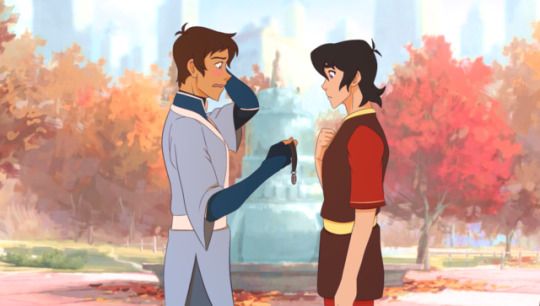
More Avatar AU requested by anon. I decided to make it klance because ofc I did xD Patrons got to see this 3 days early!
3K notes
·
View notes
Photo


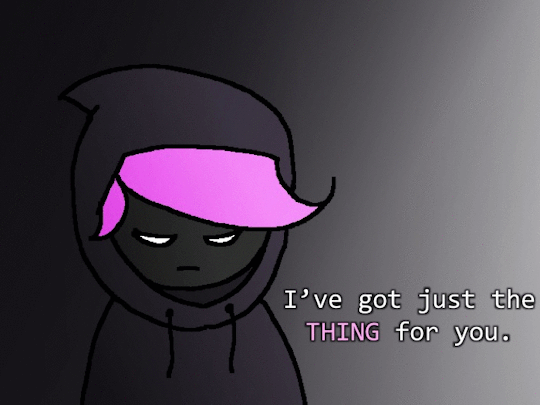
So, let me guess– you just started a new book, right? And you’re stumped. You have no idea how much an AK47 goes for nowadays. I get ya, cousin. Tough world we live in. A writer’s gotta know, but them NSA hounds are after ya 24/7. I know, cousin, I know. If there was only a way to find out all of this rather edgy information without getting yourself in trouble…
You’re in luck, cousin. I have just the thing for ya.
It’s called Havocscope. It’s got information and prices for all sorts of edgy information. Ever wondered how much cocaine costs by the gram, or how much a kidney sells for, or (worst of all) how much it costs to hire an assassin?
I got your back, cousin. Just head over to Havocscope.
((PS: In case you’re wondering, Havocscope is a database full of information regarding the criminal underworld. The information you will find there has been taken from newspapers and police reports. It’s perfectly legal, no need to worry about the NSA hounds, cousin ;p))
Want more writerly content? Follow maxkirin.tumblr.com!
451K notes
·
View notes
Text
I keep seeing fic with words censored in the body of the fic like so: c*nt, f*gg*t, q-slur (seriously, come on), r*pe, *nc*st. I even saw a fic where someone was described as “sitting next to his unalived body” which was so absurd it made me laugh.
I’ve seen this trend in tags as well, which would be ACTIVELY FUCKING DANGEROUS if AO3 tag wranglers weren’t literal, actual angels who make sure that “rape” and “r*pe” (and all such transpositions) are treated like the same tag.
AO3 isn’t TikTok. Tag accurately and completely for your fic themes so people can search AND filter. Use the correct words in your fic content so people who use blacklist extensions can actually benefit from the tools that protect them.
If you don’t feel comfortable using a word without censoring it, then don’t use that word at all. Maybe consider why you’re even writing something that contains that theme.
Sincerely,
An actual real life rape and incest survivor who has actual fucking PTSD and really doesn’t want to have to stop reading fic for my ship because people think a god damn asterisk is going to somehow save people like me from being triggered.
63K notes
·
View notes
Photo
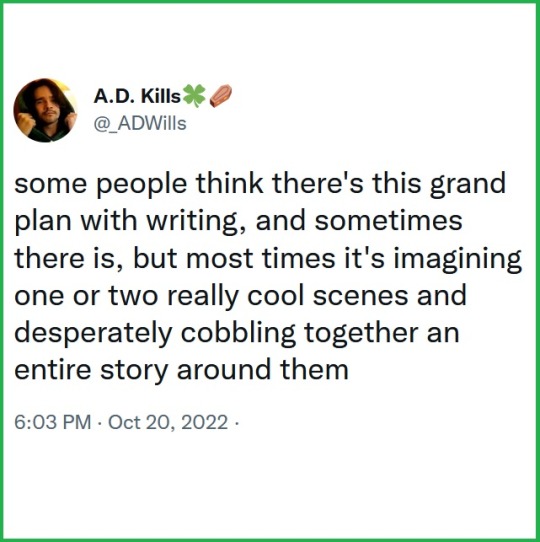
9K notes
·
View notes
Text
tools not rules: the importance of critical thinking
More than once, I’ve talked about the negative implications of Evangelical/purity culture logic being uncritically replicated in fandom spaces and left-wing discourse, and have also referenced specific examples of logical overlap this produces re, in particular, the policing of sexuality. What I don’t think I’ve done before is explain how this happens: how even a well-intentioned person who’s trying to unlearn the toxic systems they grew up with can end up replicating those systems. Even if you didn’t grow up specifically in an Evangelical/purity context, if your home, school, work and/or other social environments have never encouraged or taught you to think critically, then it’s easy to fall into similar traps - so here, hopefully, is a quick explainer on how that works, and (hopefully) how to avoid it in the future.
Put simply: within Evangelism, purity culture and other strict, hierarchical social contexts, an enormous value is placed on rules, and specifically hard rules. There might be a little wiggle-room in some instances, but overwhelmingly, the rules are fixed: once you get taught that something is bad, you’re expected never to question it. Understanding the rules is secondary to obeying them, and oftentimes, asking for a more thorough explanation - no matter how innocently, even if all you’re trying to do is learn - is framed as challenging those rules, and therefore cast as disobedience. And where obedience is a virtue, disobedience is a sin. If someone breaks the rules, it doesn’t matter why they did it, only that they did. Their explanations or justifications don’t matter, and nor does the context: a rule is a rule, and rulebreakers are Bad.
In this kind of environment, therefore, you absorb three main lessons: one, to obey a rule from the moment you learn it; two, that it’s more important to follow the rules than to understand them; and three, that enforcing the rules means castigating anyone who breaks them. And these lessons go deep: they’re hard to unlearn, especially when you grow up with them through your formative years, because the consequences of breaking them - or even being seen to break them - can be socially catastrophic.
But outside these sorts of strict environments - and, honestly, even within them - that much rigidity isn’t healthy. Life is frequently far more complex and nuanced than hard rules really allow for, particularly when it comes to human psychology and behaviour - and this is where critical thinking comes in. Critical thinking allows us to evaluate the world around us on an ongoing basis: to weigh the merits of different positions; to challenge established rules if we feel they no longer serve us; to decide which new ones to institute in their place; to acknowledge that sometimes, there are no easy answers; to show the working behind our positions, and to assess the logic with which other arguments are presented to us. Critical thinking is how we graduate from a simplistic, black-and-white view of morality to a more nuanced perception of the world - but this is a very hard lesson to learn if, instead of critical thinking, we’re taught instead to put our faith in rules alone.
So: what does it actually look like, when rule-based logic is applied in left-wing spaces? I’ll give you an example:
Sally is new to both social justice and fandom. She grew up in a household that punished her for asking questions, and where she was expected to unquestioningly follow specific hard rules. Now, though, Sally has started to learn a bit more about the world outside her immediate bubble, and is realising not only that the rules she grew up with were toxic, but that she’s absorbed a lot of biases she doesn’t want to have. Sally is keen to improve herself. She wants to be a good person! So Sally joins some internet communities and starts to read up on things. Sally is well-intentioned, but she’s also never learned how to evaluate information before, and she’s certainly never had to consider that two contrasting opinions could be equally valid - how could she have, when she wasn’t allowed to ask questions, and when she was always told there was a singular Right Answer to everything? Her whole framework for learning is to Look For The Rules And Follow Them, and now that she’s learned the old rules were Bad, that means she has to figure out what the Good Rules are.
Sally isn’t aware she’s thinking of it in these terms, but subconsciously, this is how she’s learned to think. So when Sally reads a post explaining how sex work and pornography are inherently misogynistic and demeaning to women, Sally doesn’t consider this as one side of an ongoing argument, but uncritically absorbs this information as a new Rule. She reads about how it’s always bad and appropriative for someone from one culture to wear clothes from another culture, and even though she’s not quite sure of all the ways in which it applies, this becomes a Rule, too. Whatever argument she encounters first that seems reasonable becomes a Rule, and once she has the Rules, there’s no need to challenge them or research them or flesh out her understanding, because that’s never been how Rules work - and because she’s grown up in a context where the foremost way to show that you’re aware of and obeying the Rules is to shame people for breaking them, even though she’s not well-versed in these subjects, Sally begins to weigh in on debates by harshly disagreeing with anyone who offers up counter-opinions. Sometimes her disagreements are couched in borrowed terms, parroting back the logic of the Rules she’s learned, but other times, they’re simply ad hominem attacks, because at home, breaking a Rule makes you a bad person, and as such, Sally has never learned to differentiate between attacking the idea and attacking the person.
And of course, because Sally doesn’t understand the Rules in-depth, it’s harder to explain them to or debate with rulebreakers who’ve come armed with arguments she hasn’t heard before, which makes it easier and less frustrating to just insult them and point out that they ARE rulebreakers - especially if she doesn’t want to admit her confusion or the limitations of her knowledge. Most crucially of all, Sally doesn’t have a viable framework for admitting to fault or ignorance beyond a total groveling apology that doubles as a concession to having been Morally Bad, because that’s what it’s always meant to her to admit you broke a Rule. She has no template for saying, “huh, I hadn’t considered that,” or “I don’t know enough to contribute here,” or even “I was wrong; thanks for explaining!”
So instead, when challenged, Sally remains defensive: she feels guilty about the prospect of being Bad, because she absolutely doesn’t want to be a Bad Person, but she also doesn’t know how to conceptualise goodness outside of obedience. It makes her nervous and unsettled to think that strangers could think of her as a Bad Person when she’s following the Rules, and so she becomes even more aggressive when challenged to compensate, clinging all the more tightly to anyone who agrees with her, yet inevitably ending up hurt when it turns out this person or that who she thought agreed on What The Rules Were suddenly develops a different opinion, or asks a question, or does something else unsettling.
Pushed to this sort of breaking point, some people in Sally’s position go back to the fundamentalism they were raised with, not because they still agree with it, but because the lack of uniform agreement about What The Rules Are makes them feel constantly anxious and attacked, and at least before, they knew how to behave to ensure that everyone around them knew they were Good. Others turn to increasingly niche communities and social groups, constantly on paranoid alert for Deviance From The Rules. But other people eventually have the freeing realisation that the fixation on Rules and Goodness is what’s hurting them, not strangers with different opinions, and they steadily start to do what they wanted to do all along: become happier, kinder and better-informed people who can admit to human failings - including their own - without melting down about it.
THIS is what we mean when we talk about puritan logic being present in fandom and left-wing spaces: the refusal to engage with critical thinking while sticking doggedly to a single, fixed interpretation of How To Be Good. It’s not always about sexuality; it’s just that sexuality, and especially queerness, are topics we’re used to seeing conservatives talk about a certain way, and when those same rhetorical tricks show up in our fandom spaces, we know why they look familiar.
So: how do you break out of rule-based thinking? By being aware of it as a behavioural pattern. By making a conscious effort to accept that differing perspectives can sometimes have equal value, or that, even if a given argument isn’t completely sound, it might still contain a nugget of truth. By trying to be less reactive and more reflective when encountering positions different to your own. By accepting that not every argument is automatically tied to or indicative of a higher moral position: sometimes, we’re just talking about stuff! By remembering that you’re allowed to change your position, or challenge someone else’s, or ask for clarification. By understanding that having a moral code and personal principles isn’t at odds with asking questions, and that it’s possible - even desirable - to update your beliefs when you come to learn more than you did before.
This can be a scary and disquieting process to engage in, and it’s important to be aware of that, because one of the main appeals of rule-based thinking - if not the key appeal - is the comfort of moral certainty it engenders. If the rules are simple and clear, and following them is what makes you a good person, then it’s easy to know if you’re doing the right thing according to that system. It’s much, much harder and frequently more uncomfortable to be uncertain about things: to doubt, not only yourself, but the way you’ve been taught to think. And especially online, where we encounter so many more opinions and people than we might elsewhere, and where we can get dogpiled on by strangers or go viral without meaning to despite our best intentions? The prospect of being deemed Bad is genuinely terrifying. Of course we want to follow the Rules. But that’s the point of critical thinking: to try and understand that rules exist in the first place, not to be immutable and unchanging, but as tools to help us be better - and if a tool becomes defunct or broken, it only makes sense to repair it.
Rigid thinking teaches us to view the world through the lens of rules: to obey first and understand later. Critical thinking teaches us to use ideas, questions, contexts and other bits of information as analytic tools: to put understanding ahead of obedience. So if you want to break out of puritan thinking, whenever you encounter a new piece of information, ask yourself: are you absorbing it as a rule, or as a tool?
10K notes
·
View notes
Text
I need each and every person who sees this to pay attention to what is going on with the Indian Child Welfare Act.
The same SCOTUS that refered to tribal land as a territory of the state is about to hear a case that might overturn ICWA.
ICWA allows Alaska Natives and Native Americans control over the adoption and foster care placement of Native American and Alaska Children. In practice what this ensures is that if a Native American or Alaska Native child cannot be raised with their parents', the extended family will be given custody. If the extended family cannot care for the child, the child is placed with a family in their tribe or, barring that, with a family who is Native American or Alaska Native.
This act is important for two reasons:
For centuries, Native Americans and Alaska Natives were forcibly assimilated into White culture. From the 1800s to the late 1900s, children were taken from their families and either adopted out to White people or put in boarding schools. If parents refused, they were sometimes incarcerated, and they could lose custody of their other children. There are cases where tribes would hide their children and tell people who came that they had none...so the white people started showing up uannounced. The children sent to these schools were abused. Some were murdered. And survivors still live with the trauma. ICWA was passed to stop this...but not even 50 years after it being passed, it's at risk.
Native Americans and Alaska Natives are constitutionally guaranteed sovereignty. We all know the government picks and chooses when it wants to honor that, but Native Americans and Alaska Natives are supposed to have sovereignty. The idea that one country can step in and tell sovereign tribes and nations that they are not allowed to control the placement of their own children should be absurd. The U.S. doesn't tell Britain what to do with their foster care system...but the SCOTUS knows that Native Americans and Alaska Natives don't have an army or navy like Britain does. Because of this the SCOTUS believes it has the right to violate years of precedent and treaties. It knows that it will be protected no matter what it decides.
So I'm asking people to keep an eye on ICWA. I'm asking them to boost the signal. And I'm asking them to protest if it falls.
13K notes
·
View notes
Photo
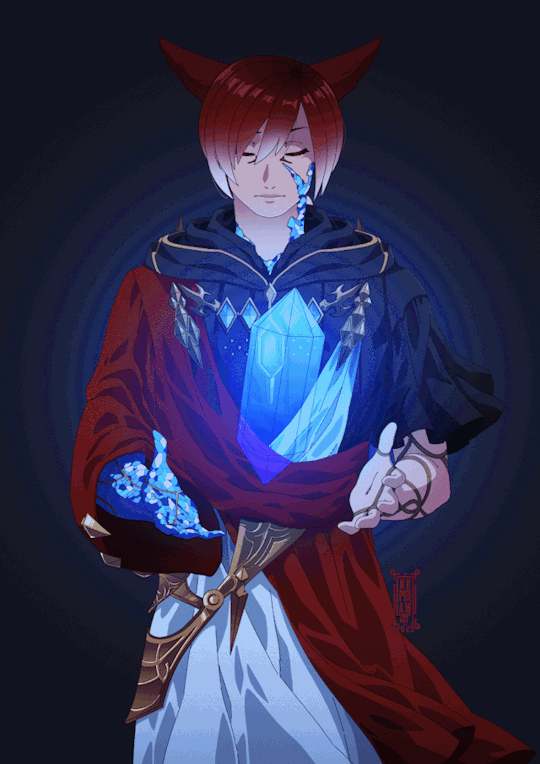
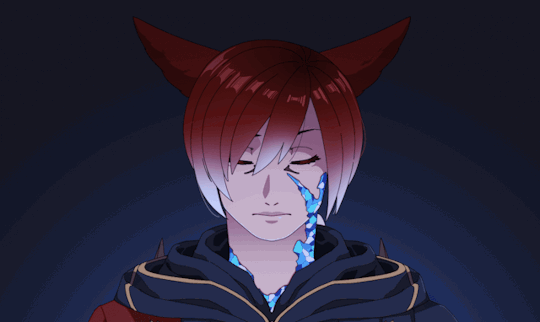
I won’t let you go alone. Not this time.
350 notes
·
View notes
Text
@ fic authors what do you personally consider a successful fic? What’s the bar?
93K notes
·
View notes